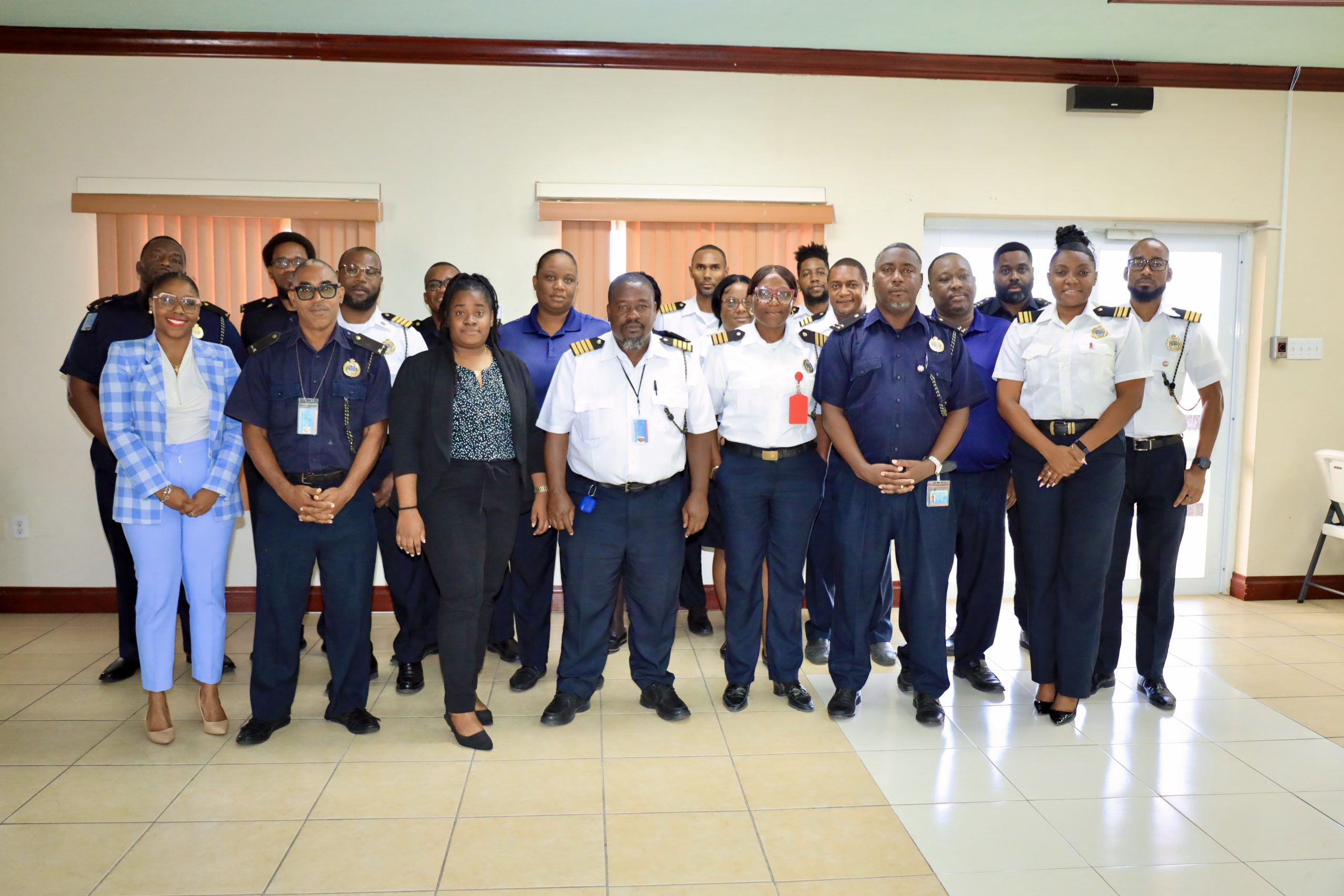Department of Environment Conducts Training on Single-Use Plastics Ban Implementation
The Federation of St. Kitts and Nevis has embarked on a significant journey towards environmental sustainability with the implementation of a comprehensive ban on single-use plastics (SUPs). This ambitious initiative, announced in March 2025 by the Honorable Dr. Joyelle Clarke, Minister of Sustainable Development, Environment, Climate Action, and Constituency Empowerment, reflects the nation’s commitment to reducing plastic waste and preserving its natural beauty for future generations. The ban is being rolled out in three phases throughout 2025, targeting various SUP items, and requires a collaborative effort across government agencies to ensure successful implementation. A crucial element of this collaborative approach is the training and education of enforcement personnel, particularly the Customs and Excise Unit, who play a critical role in monitoring and regulating the import and distribution of goods within the federation.
Recognizing the pivotal role of the Customs and Excise Unit in enforcing the SUP ban, the Department of Environment organized a specialized workshop titled “Understanding the SUP Ban.” Held at the Customs and Excise Unit’s facility on February 4th, 2025, this workshop aimed to equip officers with the necessary knowledge and practical tools to effectively monitor and control the flow of prohibited SUPs into the country. The training session brought together senior officers from the Customs and Excise Unit and representatives from the Department of Environment, fostering inter-agency cooperation and shared understanding of the ban’s objectives and implementation strategies. This collaborative approach ensured that the frontline personnel tasked with enforcing the ban were well-prepared to handle the complexities and challenges associated with regulating the import and distribution of SUPs.
The workshop delved into the critical aspects of the SUP ban, providing officers with a comprehensive understanding of the regulations and their enforcement. Key topics covered included precise identification of prohibited SUP items, clarifying exemptions to the ban, and outlining the procedures for ensuring compliance with the established regulations. Experts from the Department of Environment led the training, sharing their expertise and insights into effective enforcement strategies and best practices for inter-agency collaboration. The training aimed to empower customs officers to confidently and effectively identify and intercept prohibited SUPs, thereby contributing significantly to the overall success of the ban.
The comprehensive nature of the training provided by the Department of Environment went beyond simply identifying banned items. It emphasized the importance of understanding the rationale behind the ban, highlighting the detrimental environmental impact of SUPs and the long-term benefits of reducing plastic waste. This broader context enabled officers to appreciate the significance of their role in protecting the environment and contributing to a more sustainable future for St. Kitts and Nevis. By fostering a deeper understanding of the environmental implications, the training program aimed to motivate and empower customs officers to become active participants in the nation’s sustainability efforts.
The collaboration between the Department of Environment and the Customs and Excise Unit represents a vital step in strengthening the federation’s capacity to regulate and enforce the SUP ban effectively. By investing in the training and development of customs officers, the Department of Environment demonstrated its commitment to providing the necessary resources and support for successful implementation. This proactive approach not only equips officers with the practical skills to enforce the ban but also fosters a sense of ownership and responsibility in contributing to the nation’s environmental goals.
Ultimately, the “Understanding the SUP Ban” workshop serves as a model for collaborative efforts in addressing critical environmental challenges. By bringing together key stakeholders, providing comprehensive training, and fostering a shared understanding of the issue, the initiative sets the stage for successful implementation of the SUP ban. The commitment demonstrated by both the Department of Environment and the Customs and Excise Unit underscores the Federation of St. Kitts and Nevis’ dedication to environmental sustainability and its determination to create a cleaner, healthier, and more sustainable future for its citizens. The ongoing collaboration between these agencies will be crucial in monitoring the effectiveness of the ban, adapting to evolving challenges, and ensuring the long-term success of this important environmental initiative.
Share this content:












Post Comment